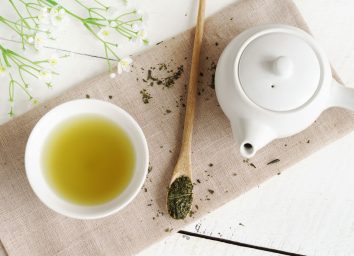The #1 Best Drink to Slow Aging, Says Dietitian
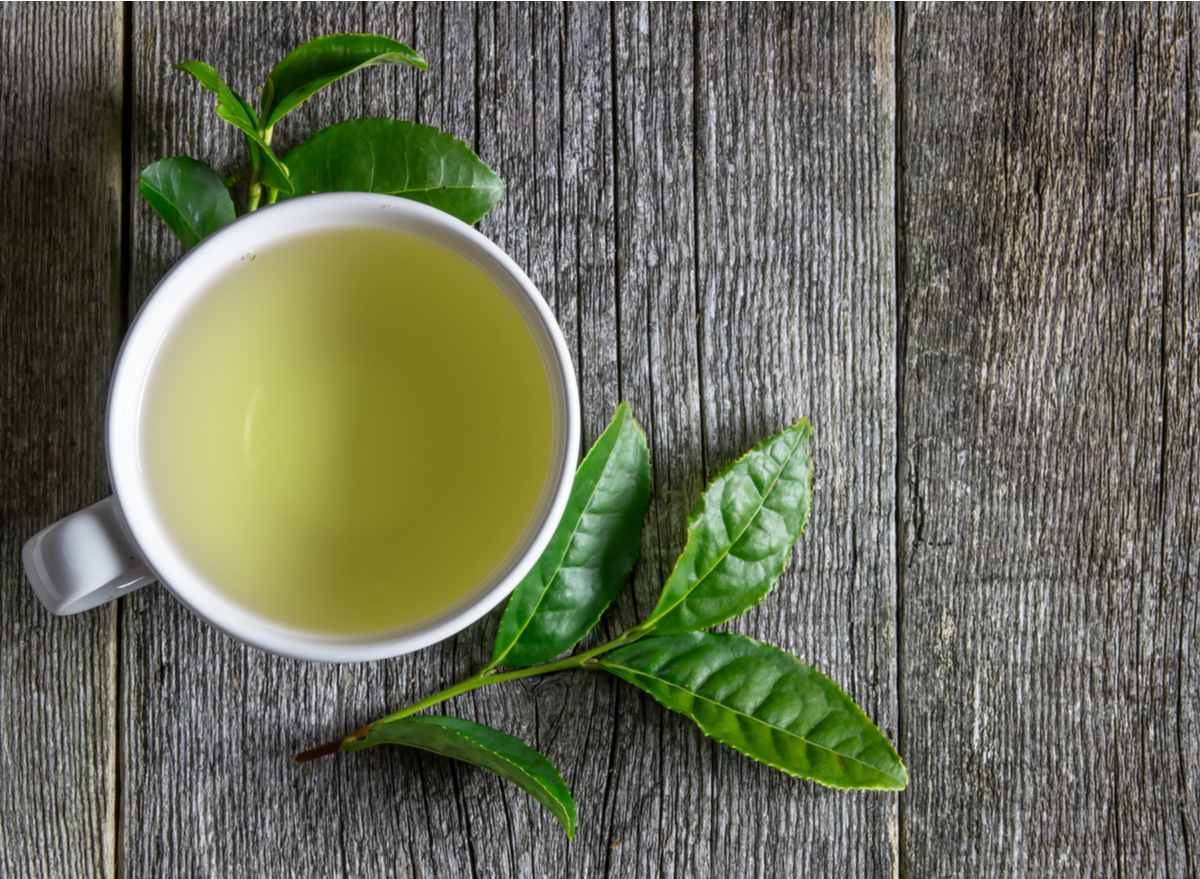
There is no shame in going through the natural process of aging because everyone goes through it. And while there's no use in trying to stop it from happening, it's also okay if you are looking to find healthy ways of slowing it down.
For example, the Mayo Clinic notes that things like exercise, restful sleep, lowering stress, and eating a healthy diet can help slow your aging process. And if you're looking for specific foods or drinks to help, we've got you covered.
According to Courtney D'Angelo, MS, RD, author at Go Wellness, one of the best drinks to slow aging is a classic cup of green tea!
Continue reading to learn why D'Angelo chose green tea as the best, and for more healthy aging tips, make sure to check out The Best Foods to Slow Aging After 50.
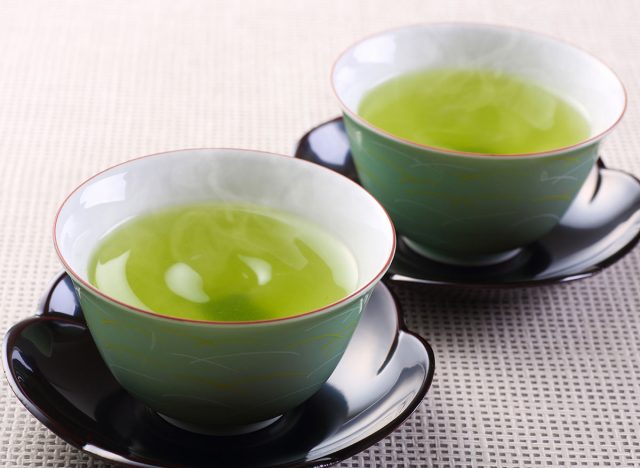
Green tea may be one of the healthiest drinks in the world, seeing as research has shown it can help speed up metabolism, reduce the risk of certain cancers, and improve cognitive health. And as if its list of benefits wasn't impressive enough already, green tea can also help slow the aging process as well.
"Green tea is packed with antioxidants, which have numerous health benefits that include promoting the immune system (preventing illness), reducing inflammation, stimulating collagen production, which is helpful in making the skin look younger," says D'Angelo.
More antioxidants than other teas
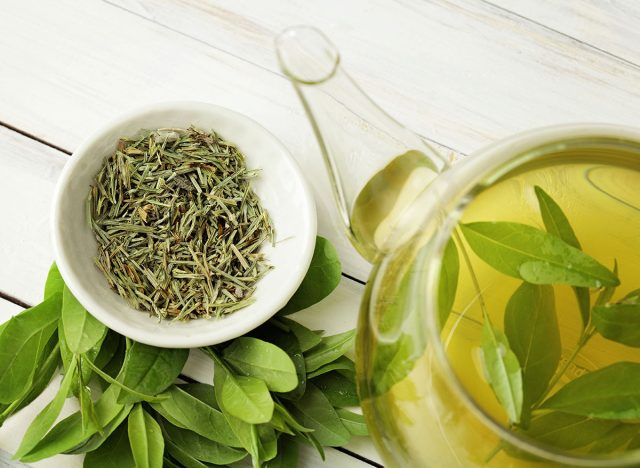
Green tea contains high levels of a specific type of antioxidant called polyphenols, which are found in many different plant compounds and are known to help fight various diseases like heart disease and diabetes.
According to a review published in Nutrients, green tea contains the highest level of polyphenols of any other tea, with about 30% of the tea coming from polyphenol antioxidants.
While many types of tea can promote healthy aging, green tea is your best bet for getting the long list of health benefits.
Are there any negative side effects of green tea?
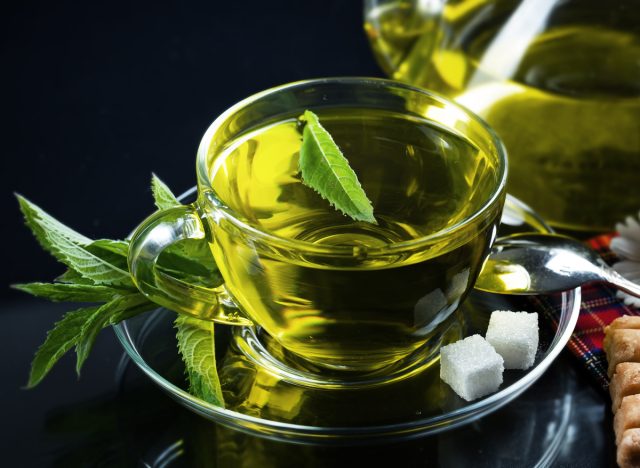
Green tea is extremely beneficial to the aging process, but it is always possible to have too much of a good thing! D'Angelo warns that "you may not want to drink too much green tea because there's caffeine in it, and too much caffeine brings in all the negative side effects associated with it."
For example, if you're prone to anxiety or having jitters, too much caffeine can exacerbate related symptoms, so it's important to monitor your caffeine consumption with green tea.
For reference, an 8-ounce cup of coffee contains around 96 milligrams of caffeine, whereas an 8-ounce cup of green tea comes with 28 grams. If you're used to drinking coffee, the caffeine in green tea may not affect you as much.

